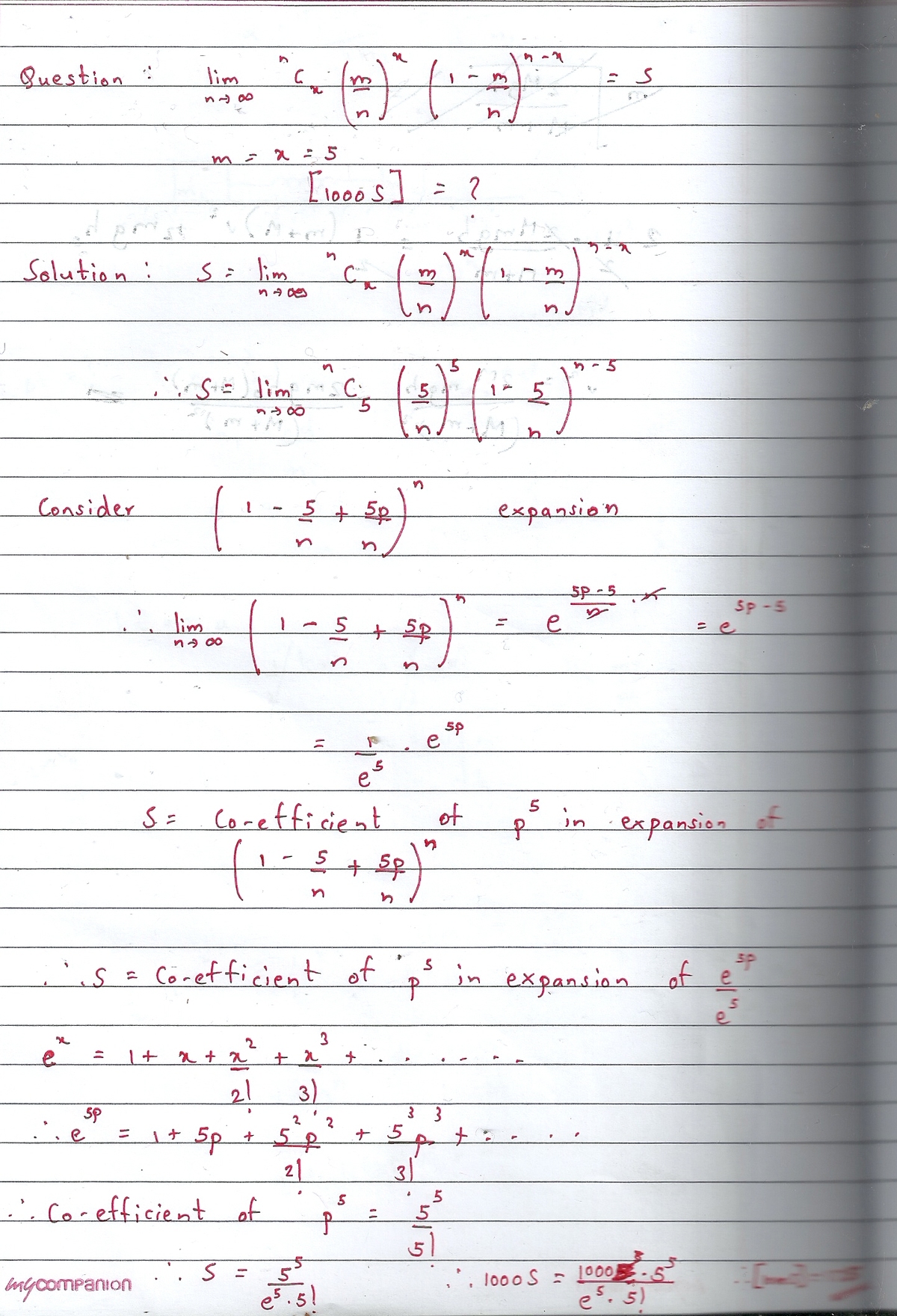I wish there was a x = 0 ∑ n on the left instead!
If the value of the following limit
n → ∞ lim ( x n ) ( n m ) x ( 1 − n m ) n − x
for x = 5 and m = 5 is S , evaluate ⌊ 1 0 0 0 S ⌋ .
The answer is 175.
This section requires Javascript.
You are seeing this because something didn't load right. We suggest you, (a) try
refreshing the page, (b) enabling javascript if it is disabled on your browser and,
finally, (c)
loading the
non-javascript version of this page
. We're sorry about the hassle.
4 solutions
Use Stirling's approximation. The answer is:
( e 5 ) 5 ⋅ 1 2 0 1
Nicely done! ⌣ ¨
The result directly follows from Poisson Approximation of Binomial Distribution .
Sorry for the unclear data in the last guys...... It says 1000S = (1000 * (5^5))/(5! * (e^5)). Hence, [1000S] = 175.

Let's first of all replace x and m with 5 .
Let's us represent n C 5 by C 5 n → ∞ lim C 5 ( n 5 ) 5 ( 1 − n 5 ) n − 5 n → ∞ lim 4 ! n ( n − 1 ) ( n − 2 ) ( n − 3 ) ( n − 4 ) n 5 5 5 ( 1 − n 5 ) 5 ( 1 − n 5 ) n Distributing the limits over multiplication we get:- 5 ! 5 5 n → ∞ lim n 4 ( n − 1 ) ( n − 2 ) ( n − 3 ) ( n − 4 ) lim n → ∞ ( 1 − n 5 ) 5 lim n → ∞ ( 1 − n 5 ) n Solving Each limit separately we get:- 5 ! 5 5 e − 5